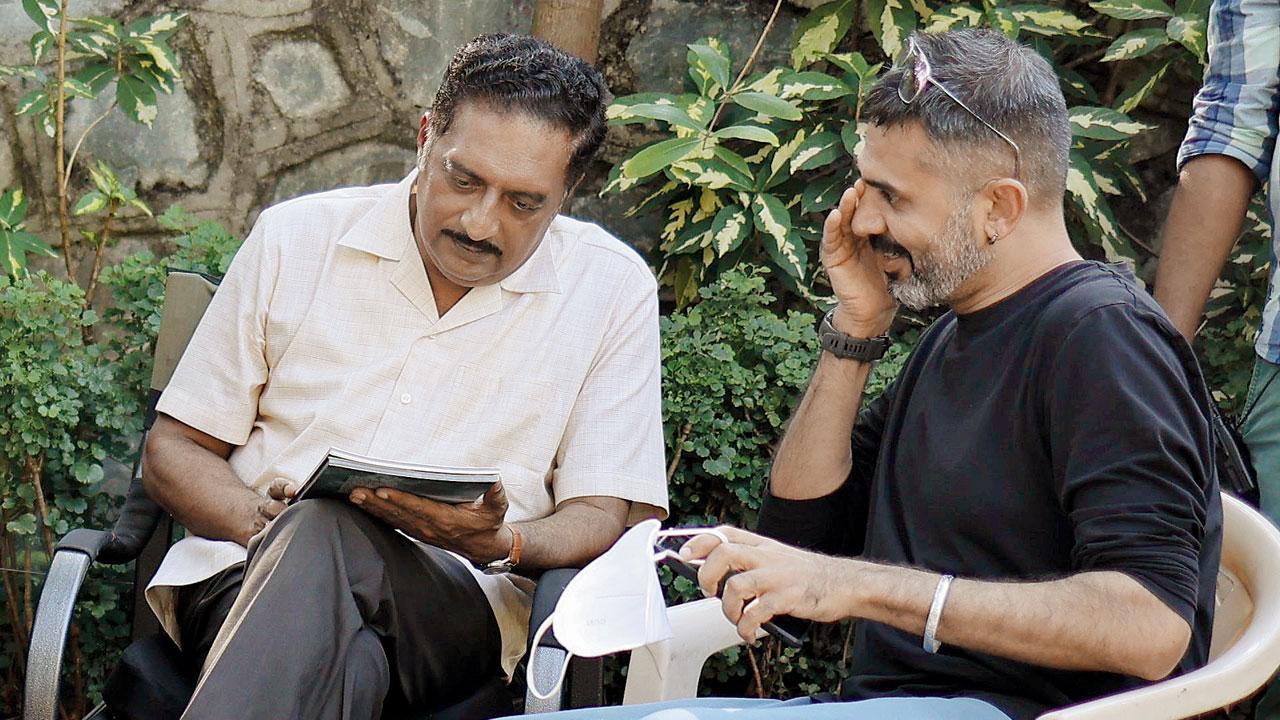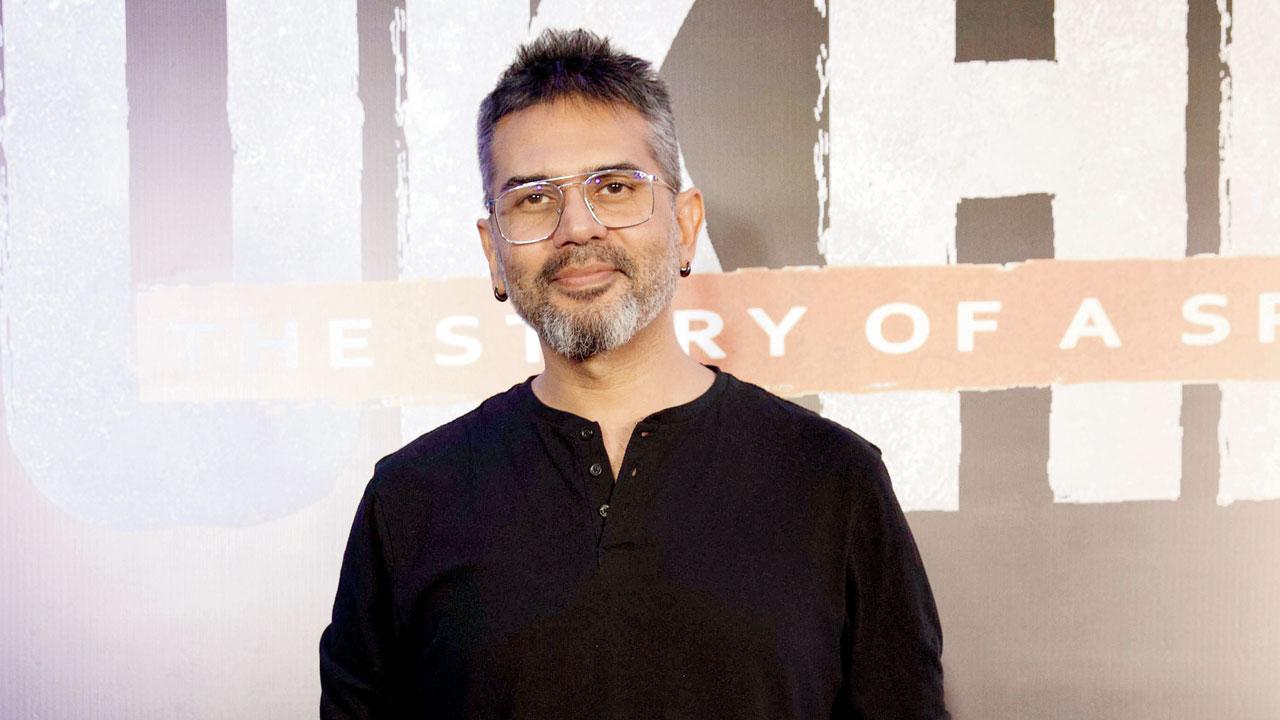Stating that authenticity is key for a spy thriller, writer Modi says Mukhbir chooses sensitivity over style

Prakash Raj discussing his script with writer Vaibhav Modi on set
What is the advantage of a producer writing his own scripts? Vaibhav Modi, who has penned the script of Mukhbir — The Story Of A Spy, believes it helps “maximise impact”. Modi, who has earlier written popular web shows, including Bekaaboo and Love By Chance and featured on Coke Studio, in tandem with other writers has adapted Maloy Dhar’s novel, Mission to Kashmir: An Intelligent Agent In Pakistan for his latest screen offering. The ZEE5 series revolves around a secret agent who helped India get the upper hand in the 1965 war by providing intelligence. In a candid chat with mid-day, Modi talks about the essential aspects of making a spy thriller.
ADVERTISEMENT
Edited excerpts from the interview.
Is there an advantage to writing your own production venture?
Largely, yes. Sometimes, a writer — writing in isolation and then passing it on to the team — leaves a lot to be desired because the resources might limit him. On other occasions, the director may have a different vision, or an actor might want to perform in a different manner. But when you are a producer, you are informed at every stage. So, it is easier to pass on what you have in mind. I know the resources and my limitations. So, to write from a producer’s lens, does not always mean cutting costs; it also means maximising impact.

When writing an espionage thriller like Mukhbir, what are you mindful about?
I am careful about three factors: You should stay away from obviousness. How many films have we seen where a cop enters a crime scene, and someone tries to tell him that something has happened? So, I found another way to say the same thing. The other factor is authenticity. The third factor is the precision of spoken word. In a spy thriller, when people are communicating, you cannot be generic about things, nor can you go into [dialoguebaazi]. In the series, not once will you hear, ‘Hamare desh ki shaan’, or ‘Hamara jhanda’ because the men who are protecting the country do not talk like that. For them, it is a duty that needs to be done with efficiency.
How much of director Shivam Nair’s input helped mould the script?
When Shivam Nair and I met, we were both trying to get into the zone [of the series]. The moment I started writing, it felt like he had adopted me. We started feeding off not just each other’s experiences, but also our lives. He walked me through anecdotes from his life, which gave a sneak peek into the intelligence world. I used to quote examples from my parents’ lives, who were with All India Radio. They were the closest window to the era of 1965.
Instead of resorting to jingoism, you’ve etched all characters, including the Pakistanis, with depth.
[Mukhbir is set] in 1965, just a few years after the Partition. One of my favourite dialogues is when Harfan’s [Zain Khan Durrani’s character] aunt tells her mother-in-law, “Police harr din elaan karti hai ki Indians se hoshiyar rahe.” The woman says, “Jab boriyon mein bartan bhar ke aaye thhe, hum bhi Indian hi thhe.” People are humans first, and then defined by religion or national border. That contributes to our spy’s dilemma. He starts realising that he is stealing information from [well-meaning, simple people]. He starts growing roots. That is the story’s complexity. If we didn’t do that, it would weigh a little less on your mind. It is easy to make a Pakistani General caricaturish. Mukhbir is more about the world of the character, than his journey. We’ve tried to give every character depth so that the ground my protagonist is walking on seems real and nuanced. Maybe our next spy thriller will be more along the lines of a James Bond thriller [laughs].
You have a stellar cast on board.
Prakash [Raj] and Adil [Hussain] have such a rich body of work. Shivam, Jayprad [Desai, co-director] and I approached these actors without getting influenced by their social media [popularity] or if they’ve done similar roles in the past. Nowadays, actors are cast from a limited pool. We consciously worked away from that.
 Subscribe today by clicking the link and stay updated with the latest news!" Click here!
Subscribe today by clicking the link and stay updated with the latest news!" Click here!







